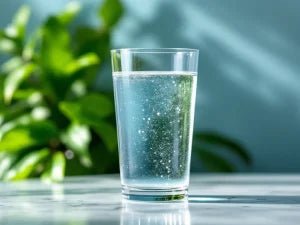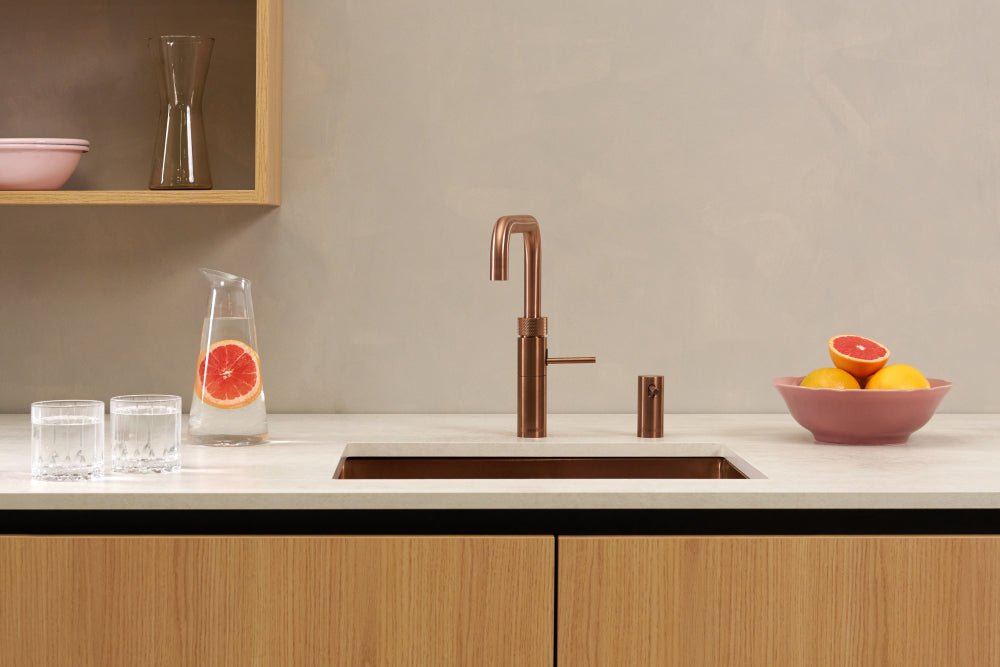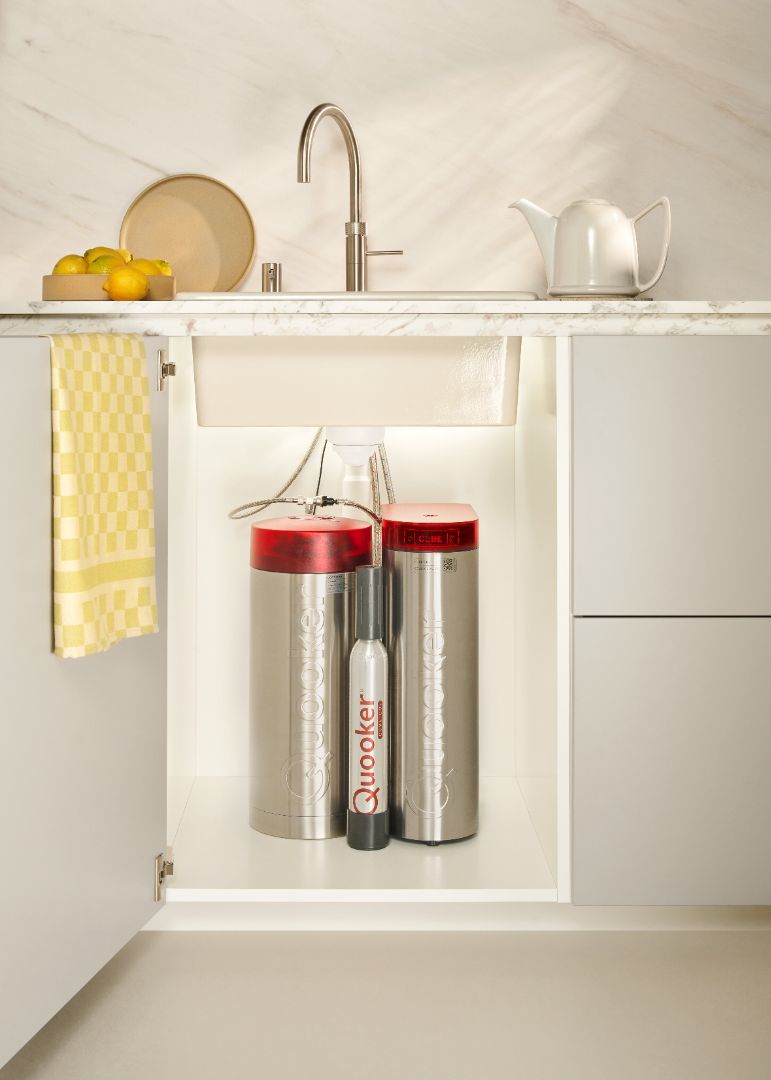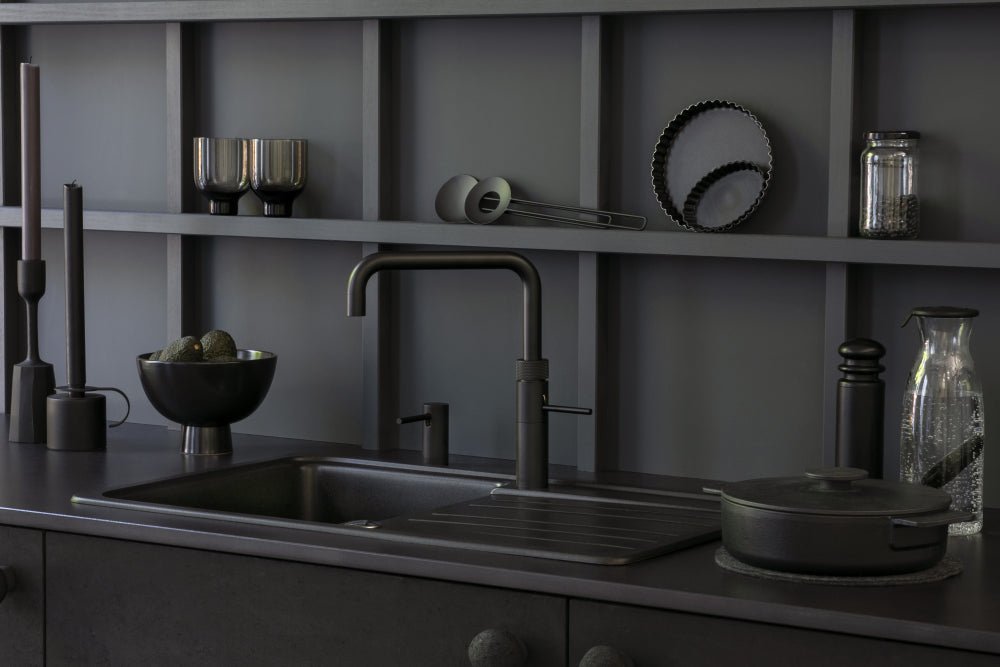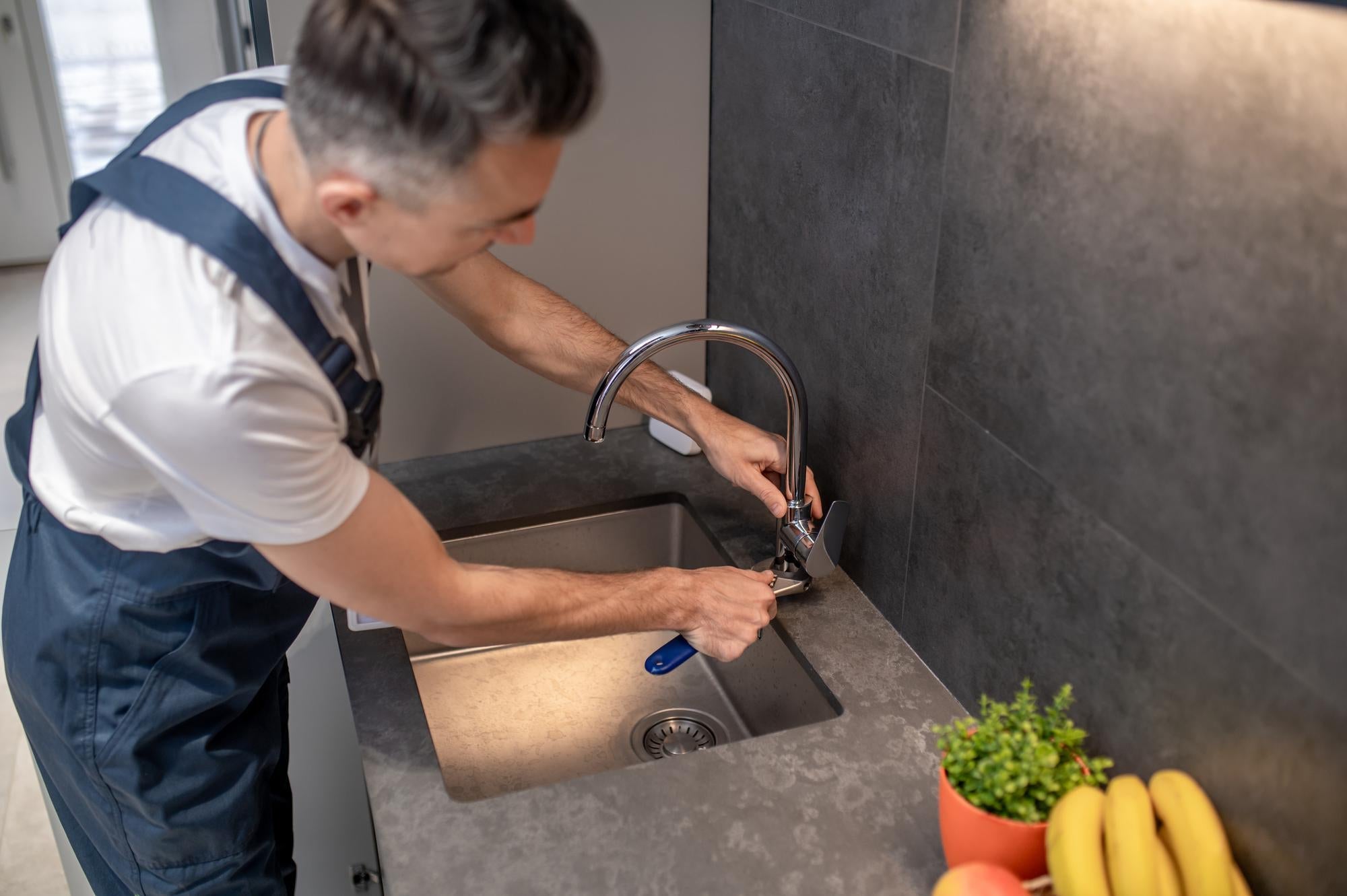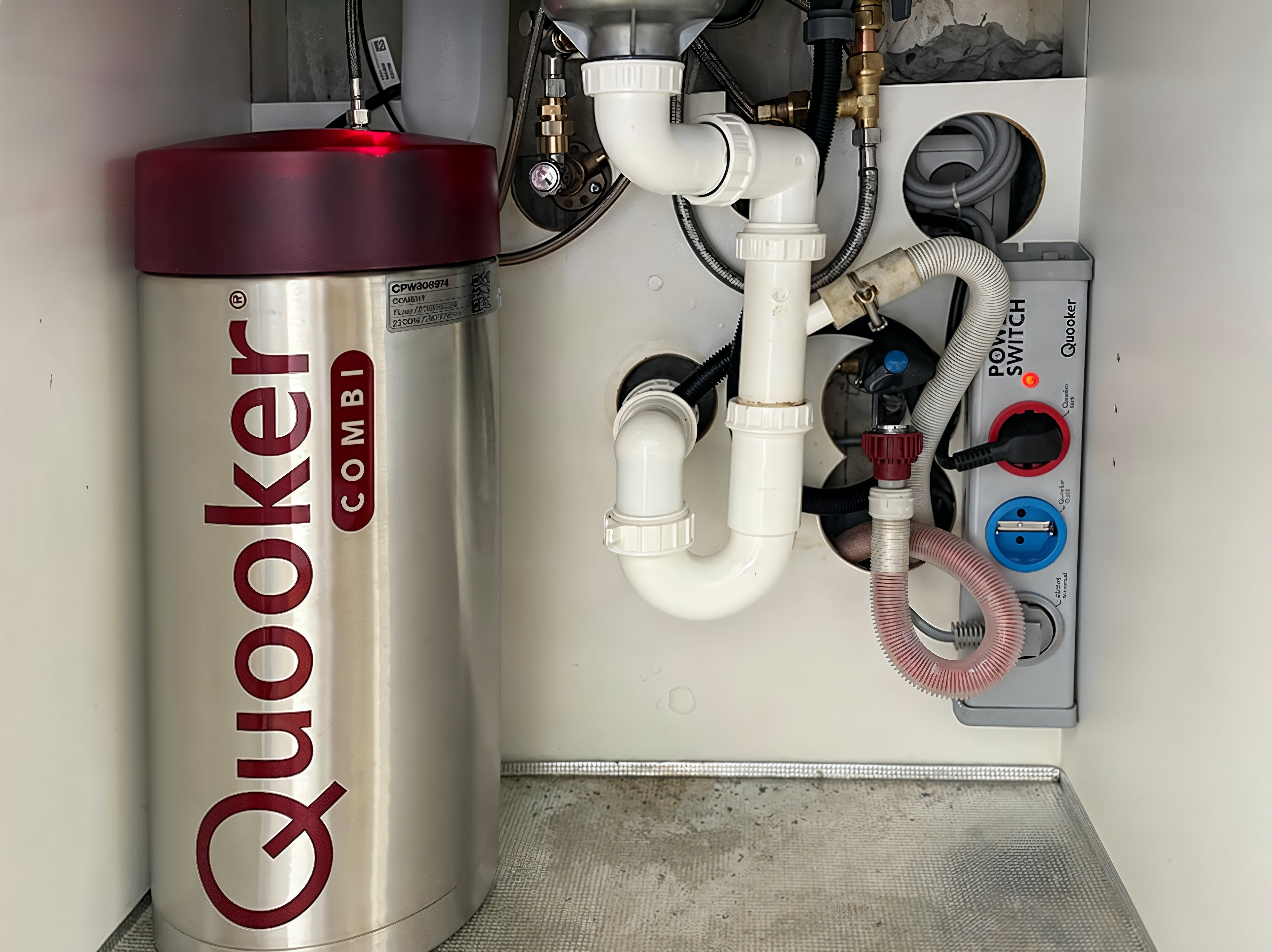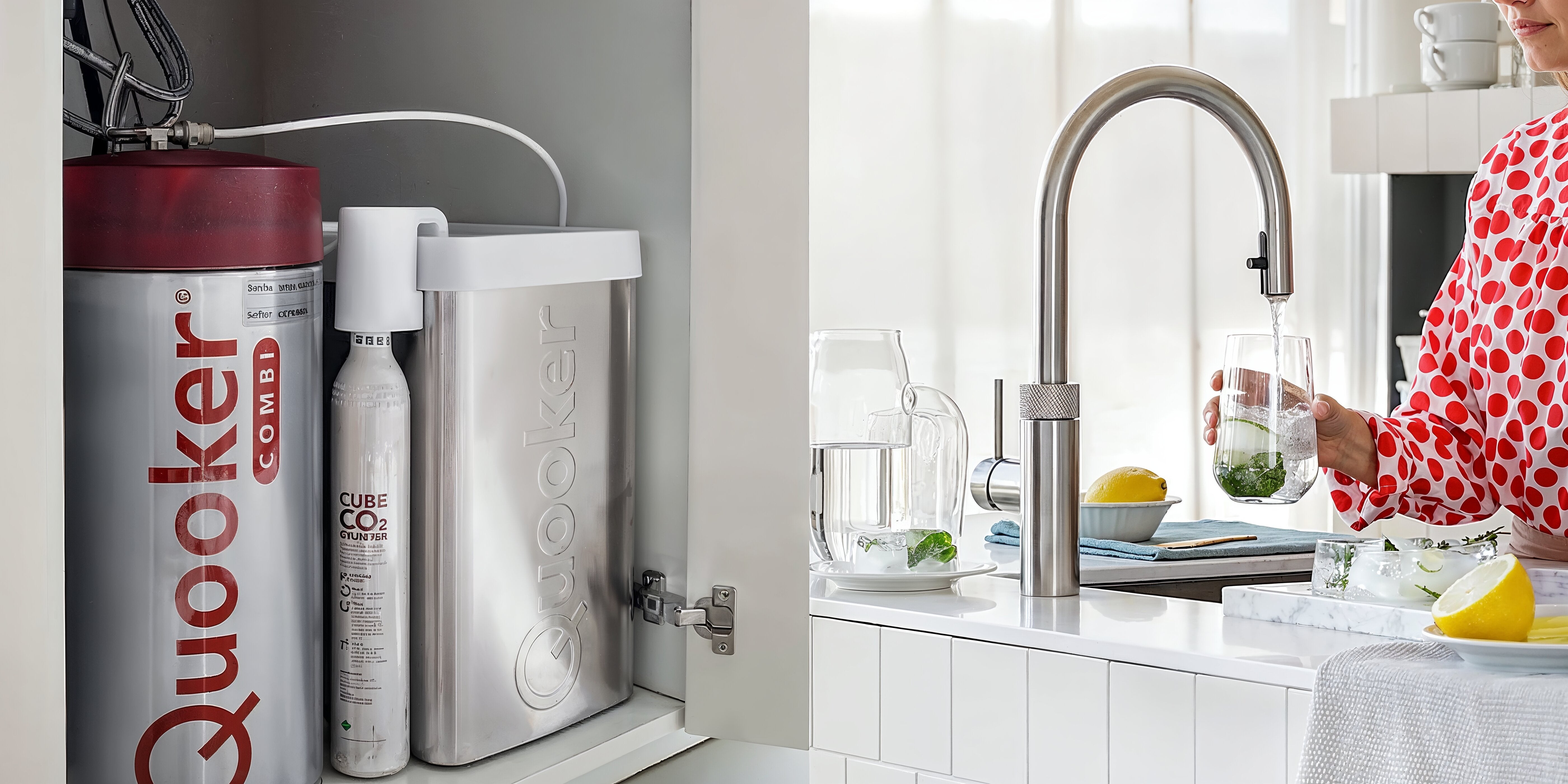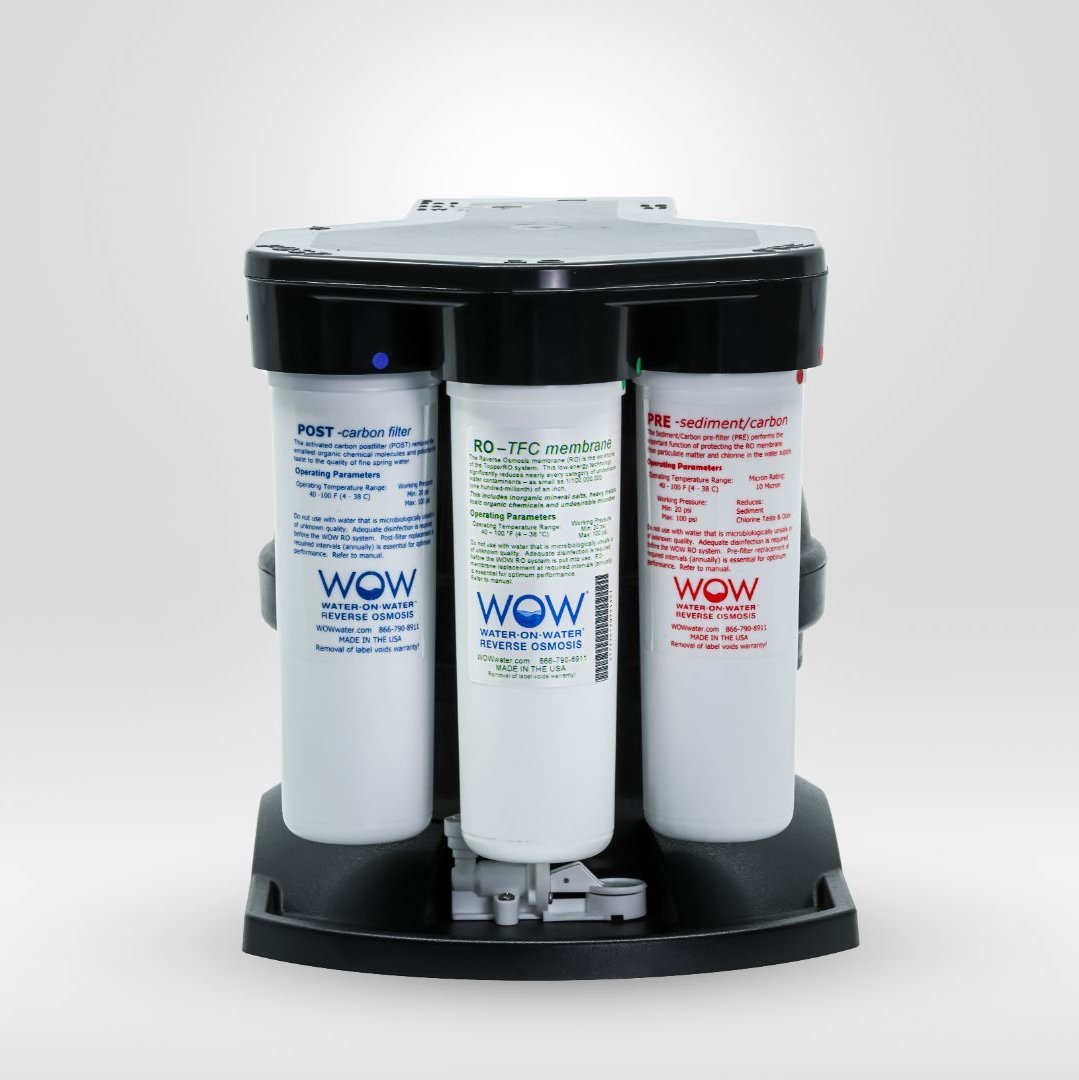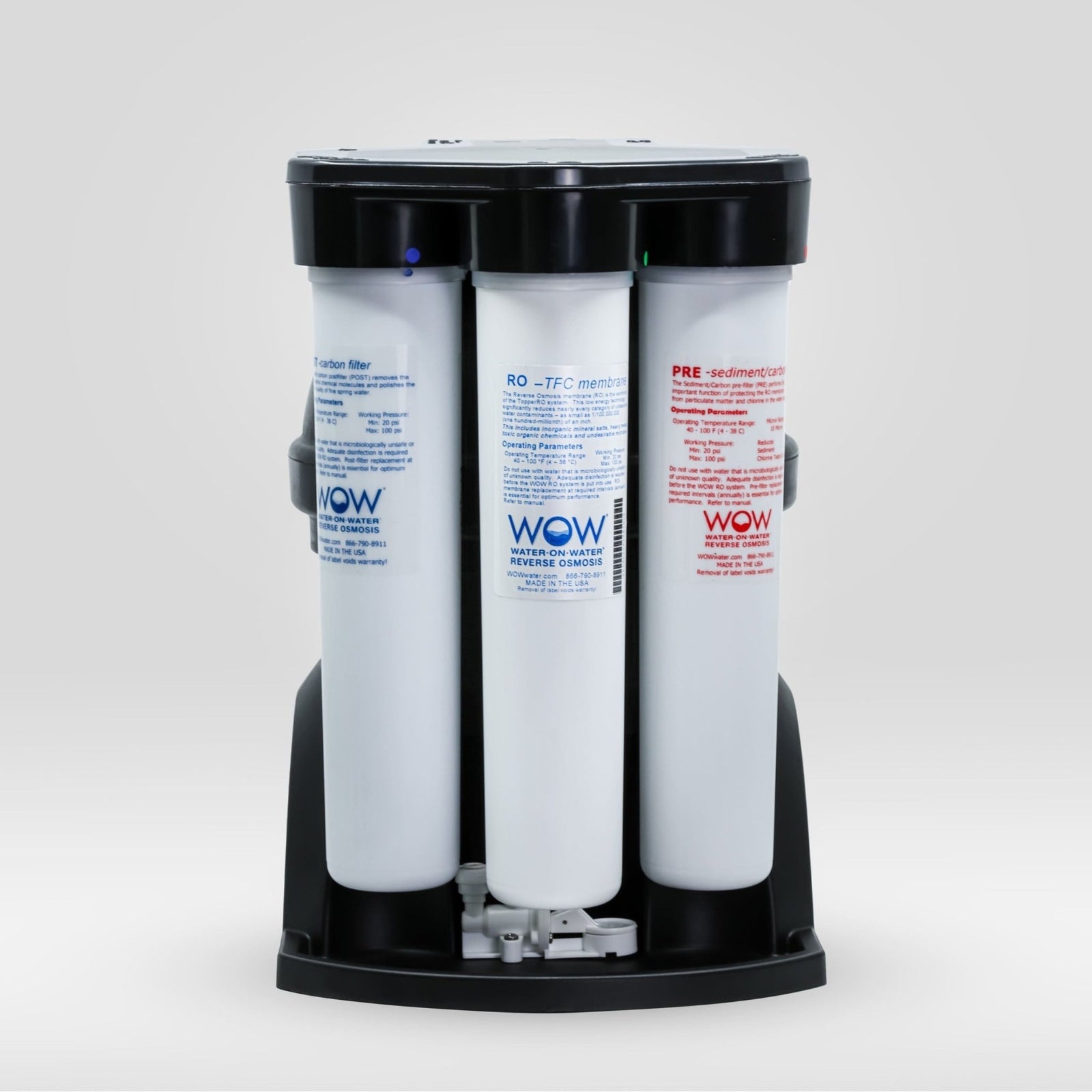Home water filtration is more environmentally friendly than bottled water by eliminating plastic waste, transport emissions, and drastically reducing the carbon footprint. A modern water filtration system with reverse osmosis technology offers a sustainable alternative that purifies tap water to source quality, removing up to 99% of unwanted substances without the environmental impact of disposable bottles.
Why is the environmental impact of drinking water important?
Growing concerns about plastic waste and CO2 emissions make choosing sustainable drinking water more urgent than ever. Billions of plastic bottles end up in our oceans and natural areas every year, where they take hundreds of years to decompose. This plastic soup not only threatens marine life but also returns to us through the food chain in the form of microplastics.
The ecological footprint of different water consumption methods varies enormously. Transporting bottled water over long distances contributes significantly to CO2 emissions, while the production of plastic bottles is energy-intensive and requires fossil fuels. Conscious choices in everyday life, such as switching to home water filtration , can make a substantial difference to the environment.
Every household that chooses filtered tap water instead of bottled water prevents hundreds of kilograms of plastic from entering the environment each year. These individual actions together form a powerful movement toward a more sustainable future.
What are the disadvantages of bottled water for the environment?
The environmental impact of bottled water begins with the production of plastic bottles. For every liter of bottled water, the production process requires approximately three liters of water, plus significant amounts of petroleum for the plastic itself. This inefficient resource allocation contrasts sharply with the simplicity of purifying tap water.
Transport poses a second major environmental burden. Bottled water often travels thousands of kilometers before reaching the consumer, with each truck emitting tons of CO2. Storage in refrigerated warehouses further increases energy consumption. Microplastics are a growing problem—recent research shows that plastic bottles release microscopic particles into the water, especially when exposed to heat or sunlight.
The recycling problem is perhaps the most daunting:
- Only 30% of plastic bottles are actually recycled
- The recycling process itself consumes energy and water
- Recycled plastic usually cannot be reused for food packaging
- The remaining 70% ends up in incinerators, landfills or nature
How does home water filtration work as an alternative?
Modern water filtration systems like reverse osmosis transform ordinary tap water into pure, spring-quality drinking water. This technology works by forcing pressurized water through a semi-permeable membrane, trapping molecules larger than water molecules. The result is contaminant-free water without the need for plastic packaging.
The filtration process consists of several steps. First, a pre-filter removes coarse particles and sediment. Then, the water passes through the RO membrane, where up to 99% of dissolved solids such as PFAS, pharmaceutical residues, pesticides, heavy metals, and bacteria are removed. A post-filter with activated carbon further improves the taste, while an optional remineralization filter adds healthy minerals like calcium and magnesium.
The membrane technology is so effective that even viruses and the smallest chemical compounds are filtered. The system operates entirely without electricity, using water pressure, making it an energy-efficient solution for any household.
What are the environmental benefits of a water filter system?
The positive environmental impact of a water filter system is immediately noticeable. The complete elimination of plastic waste means an average family saves hundreds of plastic bottles annually. No transport emissions are required because the water comes directly from the tap, drastically reducing the carbon footprint.
Modern systems are designed with efficiency in mind:
- Up to 500% less wastewater than traditional filtration methods
- Powerless operation saves energy
- Filters are fully recyclable
- Longer lifespan of household appliances thanks to limescale-free water
Minimal energy consumption is achieved by using advanced systems that utilize existing water pressure. The patented Water-on-Water storage tank ensures constant availability without electricity. These technological innovations make water filter systems one of the most environmentally friendly drinking water solutions.
What is the best choice for environmentally conscious water use?
When comparing different options for environmentally friendly water , home water filtration consistently emerges as the winner. The initial investment in a quality system is recouped within a few years by the savings on bottled water, while the environmental benefits are noticeable from day one.
| Aspect | Bottled water | Water filtration at home |
|---|---|---|
| Plastic waste per year | 365+ bottles | 0 bottles |
| CO2 emissions transport | High | No |
| Water quality | Variable | Consistently high |
| Cost per liter | €0.50 - €2.00 | €0.02 - €0.05 |
| Ease of use | Carrying and storage | Straight from the tap |
The total ecological impact over its lifespan clearly demonstrates the benefit of water filtration. A system can easily last 10-15 years with minimal maintenance, requiring only periodic filter replacement. These filters are fully recyclable, unlike the problematic recycling of plastic bottles.
For conscious consumers who value both the environment and their health, home water filtration offers the ideal balance of sustainability, quality, and convenience. The technology is proven, the environmental benefits are measurable, and the water quality often surpasses that of expensive bottled water. It's time to make the switch to a future without plastic bottles.
